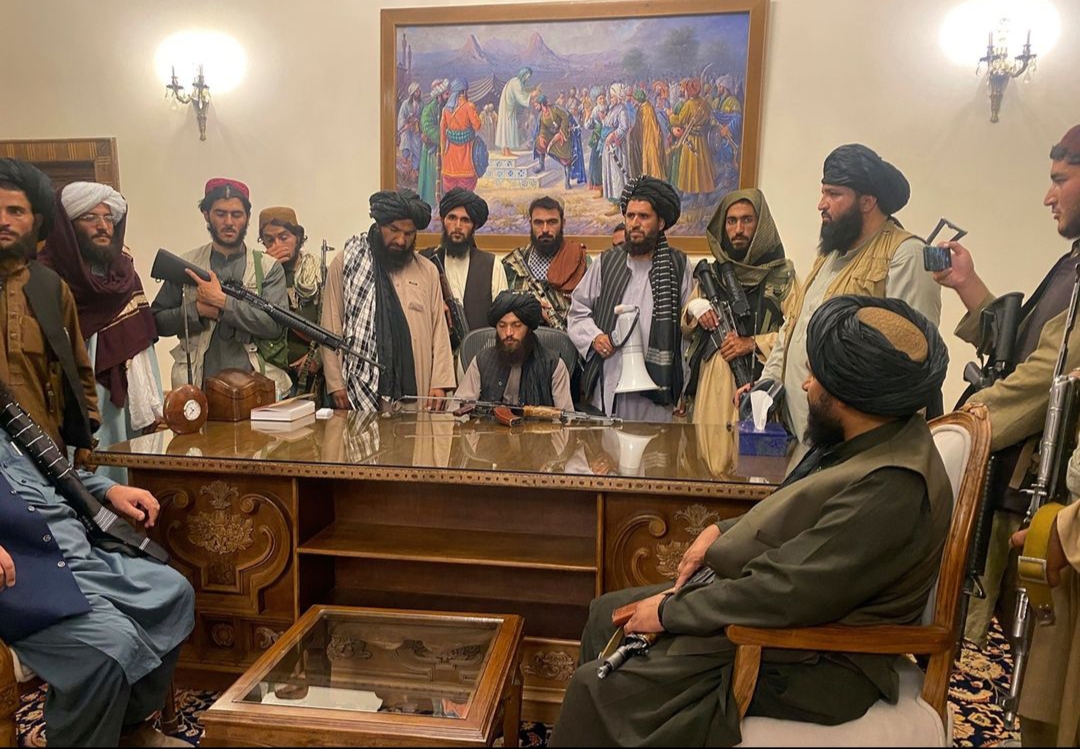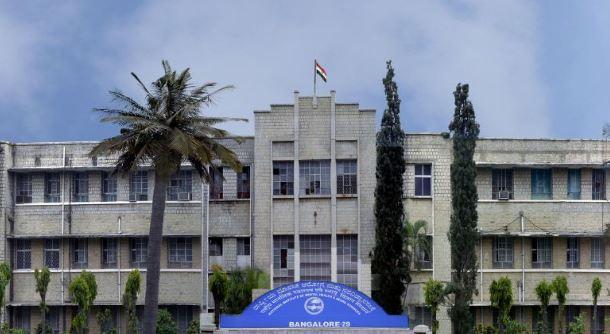The Taliban-Afghan coup

Bасkgrоund:-
- The Taliban-Afghan coup, the Taliban took practically all of Afghanistan in just over 10 Days in a shocking rout.
- Afghanistan is landlocked and mountainous, bordering six countries and dominated by the enormous Hindu Kush range, which towers over the province of Kapisa. For millennia, the country’s strategic location has attracted traders and invaders, but the difficult landscape has baffled foreign and domestic troops and provided safe haven for guerrilla militants.
- After the terrorist attacks on11th September 2001in America by Osama bin Laden, the head of Islamist terror group al-Qaeda, was protected by Taliban radical Islamists who ran Afghanistan at that time refused to hand him over.
- As a result the US launched airstrikes against Afghanistan named Operation Enduring Freedom.
- Following the attacks, North Atlantic Treaty Organization(NATO) troops launched war on Afghanistan and the United States overthrew the Taliban rule and installed a transitional government.
- Before 2001,the Taliban administered the country according to a rigid interpretation of Sharia law, reversing much of the country’s previous gains in terms of women and education. Girls were not allowed to attend school, and women were not allowed to work. The country, which is run by the Taliban, has also become a refuge for international terrorists.
- Pakistan, UAE and Saudi Arabia were the only countries that recognized the Taliban government.
Linkаges:-
- The United States and Russia have agreed that peace in Afghanistan cannot be achieved without big concessions to the Taliban. And there was no point in continuing the war.
- American efforts in the country aimed at eradicating terrorists and transforming the country into a functioning democracy. These efforts have resulted only in failure, the loss of thousands of American lives and approximately $830 billion in spend on the effort.
- The United States appointed a special envoy to Afghanistan with the authority to deal directly with the Taliban. They met with Taliban leaders in Doha and reached an agreement with the insurgents in February 2020.
- The US effectively accepted the Taliban’s demand that they only hold direct discussions with the US and not with the Kabul government, which they did not recognize, and cut the Afghan government out of the process, instead engaging in direct talks with the militants.
- The US administration promised in the agreement that it would withdraw all American forces from Afghanistan by May 1, 2021, however that deadline was eventually moved over to September 11, 2021.
- Following the signing of the agreement, the United States exerted pressure on the Afghan government to release thousands of Taliban prisoners
Сurrent Sсenаriо:-
- Despite billions of dollars spent by the US and NATO over nearly two decades to strengthen Afghan security forces, the Taliban took practically all of Afghanistan in just over 10 Days in a shocking rout.
- On August 15, the Taliban resurrected in Kabul, and gunfire and terror erupted in the streets as President Ashraf Ghani fled the country amidst such a difficult situation and before the power transfer.
- Ashraf Ghani took a flight to Tajikistan, later left for Tashkent in Uzbekistan, leaving a small band of political representatives to complete the handover of Afghanistan’s final frontier to the insurgents and left a Facebook post saying that he left to avoid bloodshed in the capital.
- Radical Islamist terrorists had captured Kandahar, the country’s second largest city, as well as a number of provincial capitals, just days before they captured the capital.
- In less than a week, Taliban insurgents have retaken nearly all of the country’s major towns, as well as contesting or controlling the majority of local districts in the country’s 34 provinces.
- Taliban negotiators discussed the power transfer after the insurgents entered Kabul.
- In central Kabul, sporadic shooting was reported in central Kabul, sporadic shooting was reported. Even when panicked citizens blocked the streets, government troops abandoned checkpoints. The Taliban had taken over Kabul’s major Pul-e-Charkhi jail by August 15 evening, liberating the detainees.
- Afghan university students described how they felt betrayed as they watched the evacuation of the U.S. Embassy and commented that they failed the youth of Afghanistan
- Before the Americans left, smoke was seen rising from the embassy’s roof, fueling speculation that the diplomats had destroyed important data and records.
- Germany has stated that military aircraft will be dispatched to Afghanistan to evacuate Germans and support personnel.
Imрасt:-
Impact on Afghan People
- The Afghan government has fallen and the Taliban took over control of the country’s capital, Kabul.
- US and North Atlantic Treaty Organization (NATO) forces withdrew from Afghanistan after a 20 year presence.
- Recent developments have resulted in one of the fastest growing humanitarian crises in the world with a huge spike in the number of internally displaced persons.
- Nearly 4, 00,000 people have been forced from their homes since the beginning of the year.
- This agreement shifts the power balance in favor of the Taliban, with strategic, security, and political repercussions for India. India has a significant stake in Afghanistan’s stability, having committed significant resources in the country’s growth.
- A lot of Women and children were displaced from their home and captured.
- Though the deal is a good step, it would not be easy achieving lasting peace in Afghanistan and will require patience and compromise among all people.
Impact on USA
- In exchange of the agreement, the Taliban agreed to reduce violence and attacks against the US and its Western allies, and will not let other militants to exploit its territory for such purposes.
- Prior to a peace accord, US negotiators seek a permanent cease-fire between US, Taliban, and Afghan government forces, while the Taliban insists on delaying a cease-fire until US troops have departed. So by this withdrawal a permanent ceasefire and the future political roadmap for Afghanistan peace process and the Central region is found.
- Taliban has agreed to participate in intra-Afghan peace talks,
- Agreed to terminate all contacts with foreign terrorist organizations.
- Finally with this deal the end to America’s “endless wars” in the greater Middle East region is a reality.
Impact on India
- This agreement shifts the power balance in favor of the Taliban, with strategic, security, and political ramifications for India. The agreement could jeopardize India’s critical interests in Afghanistan.
- India has a significant stake in Afghanistan’s stability and has made significant investments in Afghanistan’s development.
- Because the Taliban is commonly regarded as a protégé of Islamabad, an expanded political and military role for the Taliban, as well as the growth of its territorial authority, should be of significant concern to India.
- Because Afghanistan serves as a gateway to Central Asia, the agreement may dampen India’s interest in the region.
content contributed by-
MEGHNA MANOJ









